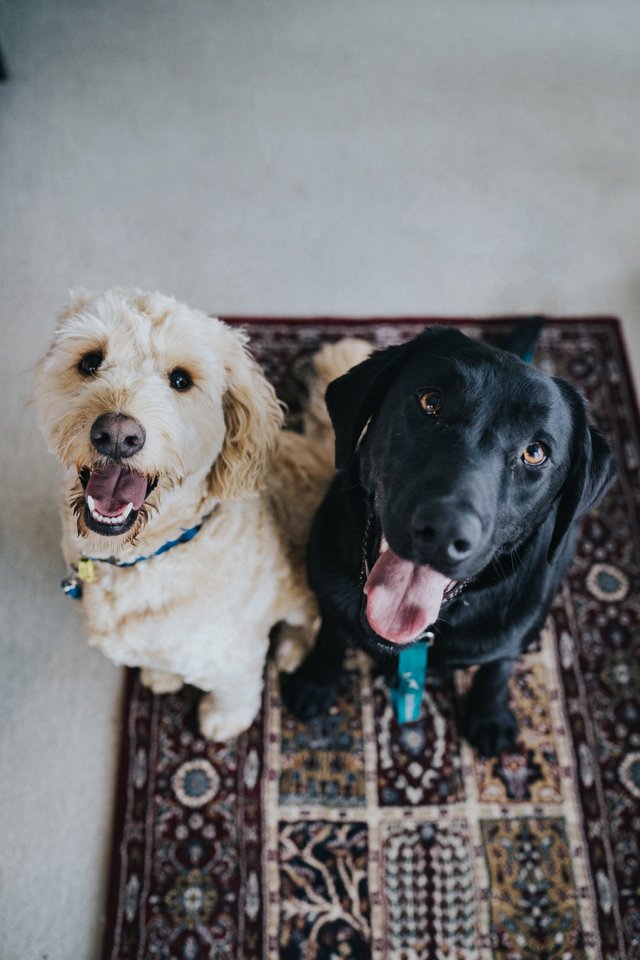At what age do you start educating your dog?
My dog is already 4 years old, it is now too late to teach him anything
Adopt a puppy rather than a dog it will be much easier!
My puppy is 2 months old, I leave him alone until he is 6 months old and I will start the education at this time
My dog can not learn anything anymore, he is already an adult!
Have you heard these sentences before? Or have you already said them? So today I propose an article to really know when to start a dog's education, how long can he learn and especially how to do if you adopt an older dog!

Education starts from the first day of the dog's life
Know that you adopt a 2 month old puppy or a 5 year old adult dog, in any case, his education began in the first weeks of his life, with his mother and his siblings. He did not wait for you to learn!
In fact, from the beginning, her mother has imposed prohibitions, set limits and learned various learning such as inhibited bite for example. These learnings, if they are well initiated, you will be a great help for the future.
Hence the importance of choosing a puppy from a serious breeding, with a balanced mother who can teach her puppies good bases.
Do not wait after adoption
But of course, even if the first 2 months of a puppy's life are important and even decisive, they do not remain less than two months ... When you adopt your puppy, you must, immediately, set up rules of living at home, limits not to be crossed, socialization of quality and educational bases to strengthen positively.
Moreover, even for people who "make the choice" to begin the education of their puppy from 6 months for example, for some unknown reasons, subconsciously, they still learn in everyday life to their dog!
Indeed, we do not wait for the puppy's 6 months to teach him cleanliness, to stay alone, not to beg at the table, not to jump on people, to wait, to sit down to put the collar before the ride, etc. These are gestures that we make and learning that we ask his dog unconsciously. For many, it is not "education" per se, and yet, it is even the foundation of education.
In addition, be aware that even if the education or rehabilitation of an adult dog is quite possible, it will always be easier to teach a puppy because we start from a raw base. With a puppy "there is more than" as they say. Just find the right techniques and the right attitude to adopt and the latter will follow without necessarily asking questions. While an adult dog will have had time to take bad habits and will even have bad experiences that will hold him back in various learning.
Apprendre tôt, c’est bien. Apprendre bien, c’est mieux
Comment évoqué précédemment, éduquer tôt c’est bien, faut-il encore trouver la bonne technique et surtout la bonne attitude à adopter en fonction du chiot/chien que vous avez.
Bien entendu, si l’idée est de frapper son chien pour qu’il écoute ou encore de lui apprendre des choses qu’il n’est pas en mesure d’assimiler : mieux vaut s’abstenir !
D’autant plus si vous avez un chiot, le plus important sera de respecter son rythme d’apprentissage et surtout de lui permettre de se défouler, se détendre et de s’aérer l’esprit entre chaque apprentissage. Le but n’est pas d’en faire un robot ! Vous avez malgré tout devant vous un être vivant avec sa propre sensibilité, ses qualités, ses défauts, ses capacités plus ou moins développées, ses instincts naturels, etc.
Donc oui l’éducation s’apprend le plus tôt possible, mais elle sera amenée et proposée de différentes manières selon l’évolution du chien en question, qu’il soit chiot ou même adulte.
Par exemple, on ne demanderait pas à un enfant de faire une division sans d’abord avoir appris à additionner… ? Et bien pour les chiens c’est la même chose, qu’ils soient chiots ou adultes :
On ne demandera pas à un chiot de 2 mois et 1/2 de savoir se retenir de faire ses besoins pendant une journée entière
On ne demandera pas non plus à un chien adulte complètement dissocialisé de s’entendre avec tous ses congénères
Un chien apprendra toute sa vie, il n’y a pas de limites d’âge
It will be very important to offer various mental stimulation to your dog because a dog will constantly want to learn and will always want to please his master and interact with him.
Moreover, know that the mental expenditure is much more important and rich than the simple physical expenditure. So, even if your adult dog is "well educated", always go further and teach him various tricks regularly to always stimulate him.
What you must remember
What you need to remember is one sentence: the education of a dog starts in the first weeks of life and must be constant.
Dachshunds were originally bred for fighting badgers.
I love it! check out my blog post for my dogs as well!!! :)